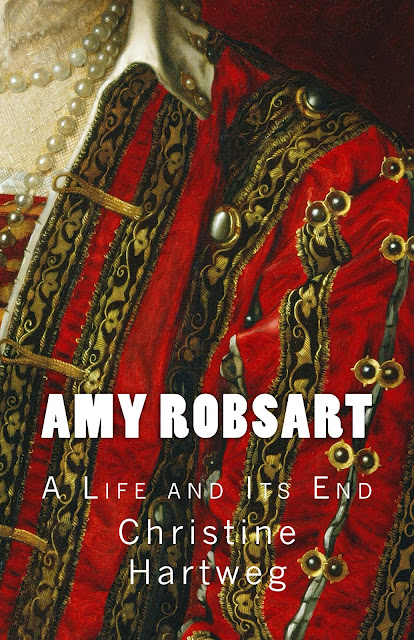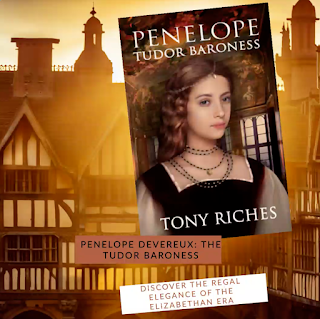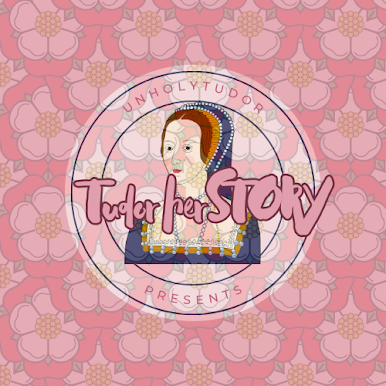The six wives of Henry VIII : Anna von Kleves
We all know the story of Henry VIII and his six wives, but I still like to talk about them occasionally.
Anna Von Kleves, the Flanders mare? Or a beautiful young woman with a steely determination to survive?
In 1527, when Anna was 11, she was betrothed to Francis, the son and heir of the Duke of Lorraine. The betrothal was to be broken a few months later, as Francis was 10 at the time of their engagement, he was considered not old enough to consent to the match. It seemed the family was divided by religion, and feuding with Charles V, the Holy Roman Emperor, made the German family more appealing to the isolated Kingdom of England.
It should be noted that Thomas Cromwell heavily influenced this match and convinced the King to pursue an alliance with Germany.
Henry VIII sent his painter Hans Holbein the Younger to paint portraits of Anna and her younger sister Amalia. Henry wanted the paintings to be as accurate as possible and not to flatter Anna or her sister, this is in modern terms Tinder.
Henry very much liked the portrait that he was given of Anna, and gave his councillors the go-ahead to proceed with marriage negotiations. By March, the negotiations were in full swing and Thomas Cromwell oversaw much of the proceedings. The marriage treaty was signed in October 1539 and the King agreed to pay 10,000 florins to Anna's brother, who was now the Duke of Cleves.
Anna was not as highly educated as Henry's previous wives, Catherine of Aragon and Anne Boleyn, but like Jane Seymour, she was skilled in needlework and liked playing card games. Anna could read and write but only in German, so she did need to learn English fast if she wanted to converse with her new husband. Anna was considered a gentle and docile person which appealed to Henry.
Anna was described by the French ambassador Charles de Marillac " as tall and slim, of middling beauty and of very assured and resolute countenance". She was fair-haired and was said to have had a lovely face.
Anna travelled from Düsseldorf to Cleves, onto Antwerp and then Calais. Anna arrived at Dover and travelled to Rochester Abbey in Rochester where she was to rest for a few days before she met the King. Henry fancied himself quite in love with the idea of Anna and could not resist meeting her a couple days earlier.
Henry met her privately on New Year's Day, he and his courtiers dressed up in disguise, the act of courtly love, Henry used to enjoy dressing up in disguise in his marriage to Catherine of Aragon. It was very much a disaster, Eustace Chapuys reported,
"[The King] so went up into the chamber where the said Lady Anne was looking out of a window to see the bull-baiting which was going on in the courtyard, and suddenly he embraced and kissed her, and showed her a token which the king had sent her for New Year’s gift, and she being abashed and not knowing who it was thanked him, and so he spoke with her. But she regarded him little, but always looked out the window .... and when the king saw that she took so little notice of his coming he went into another chamber and took off his cloak and came in again in a coat of purple velvet. And when the lords and knights saw his grace, they revered him."
According to the King's closest companions, Henry was disappointed with Anna and felt she was not as she had been described. What happened was Anna showed in her eyes her disappointment at seeing the ageing King and Henry did not like that. His courtiers told him how beautiful and magnificent he was, and Anna showed him he was not that Renaissance Prince anymore.
Henry and Anna met formally at Blackheath outside the gates of Greenwich Park, there was a grand reception for the whole court. Behind closed doors, Henry wanted a way out of the marriage and urged Cromwell to find a way out. Henry was very vocal about his misgivings about the marriage, if Anna knew, we cannot be sure, we cannot even be sure how she felt about marrying the ageing King into a court she didn't know or understand.
Despite being desperate for the marriage not to happen, the marriage went ahead on the 6th of January 1540, at Greenwich. Anna's motto for becoming Queen was, "God send me well to keep" and this was engraved on her wedding ring. Anna immediately conformed to the Catholic form of worship that Henry had maintained during the break from Rome.
The couple's first night as husband and wife was not successful, according to Henry they had not consummated the marriage, and he is supposed to have said to Cromwell " I liked her before not well, but now I like her much worse". Anna may have been innocent in the ways of the marital act but she knew her position as Queen was precarious, if Henry didn't like her, he would just get rid of her.
In 6 months of marriage, it was never consummated. Anna gave a brave face to the court and relished being Queen for the time being. She ordered many jewels required for her new status and formed a good relationship with both of her stepdaughters and would do so until her death.
The court was abuzz with gossip, and they were all asking what is so wrong with her? or if there was something wrong with the King. In February 1540, Anna praised her husband to the Countess of Rutland, one of her ladies, saying that he was kind and that he kissed her Good Morning and Goodnight each day, the Countess was alarmed when she was told this and responded to her Queen "Madam, there must be more than this, or it will be long ere we have a Duke of York, which all this realm most desireth".
Anna was learning English very quickly and could converse with her ladies much more, she started to learn English customs to try and please her husband. Sadly, Henry had turned his eye onto one of Anna's ladies-in-waiting, Catherine Howard, she was young, vivacious and bubbly. At this point, it did not matter what Anna did to appeal to the King, he decided he didn't want her and that would be the end of it.
On the 24th of June, Anna was commanded to leave the court and go to Richmond Palace for the "better air". By the 6th of July, Anna was informed of the King's decision to reconsider the marriage, and witnesses and physicians were questioned on if the marriage was consummated and the King's disappointment. Anna was asked to agree to annul the marriage because the marriage was not consummated and the King was more than able to. Cromwell, the driving force behind this marriage was arrested for treason and sent to the Tower. The marriage was formally annulled on the 12th of July on the grounds of no consummation and her former betrothal to the Duke of Lorraine not being broken.
Anna was given a very generous divorce settlement most likely because she was so compliant in giving Henry what he wanted. She was given the title "the King's beloved sister", and one of the properties given to Anna was Hever Castle, the childhood home of Henry's second wife Anne Boleyn.
She was often invited to court and given precedence over the ladies of the court bar his wife and daughters. Anna lived quite comfortably and often visited court, and she maintained a close relationship with the King, and their relationship was better than not being married.
Henry married his fifth wife, Catherine Howard on the 28th of July at Oatlands Palace, on that same day, Thomas Cromwell the same man who urged Anna's marriage to the King was executed for treason. Anna got on well with her successor, after all, Catherine was her lady-in-waiting.
Catherine and Henry's marriage only lasted 18 months until she was accused of adultery. When Catherine was executed, many people pushed Henry to take Anna as his wife again, but Henry was very swift to refuse. Henry was not single for long, he was to take his sixth and final wife, Katherine Parr, Anna took a disliking to Katherine, possibly because this Henry had publicly snubbed her again.
King Henry VIII died in January 1547, Anna very much led a private life as a very wealthy lady. As the years wore on, she made very few public appearances. During Mary I's reign, Anna attended her coronation and congratulated her on her engagement to Phillip II. Mary was a Roman Catholic and a very strict one too, so once again Anna converted religion for an English monarch.
Anna's favour with Mary did not last, Mary suspected Anna of being involved in Wyatt's rebellion against Mary due to her close relationship with Princess Elizabeth. There was no evidence of Anna being involved but there is no record of her ever being invited to court again.
When Anna's health began to fail, Mary allowed her to live at Chelsea Manor, the former residence of Catherine Parr who died in childbirth in 1548. Anna dictated her final will in July 1557, it mentions her family from Cleves, Princess Elizabeth, the Duchess of Suffolk and Countess of Arundel. Anna died on the 16th of July 1557, most likely due to cancer, she was known by her servants to be generous and kind.
Anna was buried in Westminster Abbey, the only of Henry's wives to be buried there. Anna was the last of his wives to die.
Anna is usually disregarded in many respects, and just termed as 'the fourth wife' but she was so much more, she went into a court she knew little about and survived, she even became better off for it. She lived in comfort and safety for the remainder of her time in England and died a wealthy independent woman. She is a fabulous woman to research and has not spoken about enough.
Until next time,
Unholytudor 🌹




Comments
Post a Comment